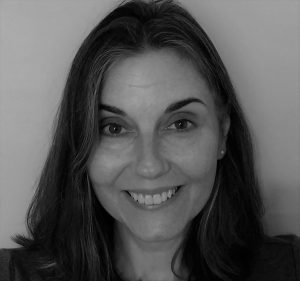By Deborah Dixon, Reiki Master Teacher (RMT) in Usui Tibetan Reiki.
The Reiki program is a series of classes with in-person and virtual options. Reiki: Level One is an introduction and establishes self-treatments as the bedrock of the Reiki practice. Reiki: Level Two delves deeper into traditional Japanese techniques and supports sharing Reiki professionally. Finally, Reiki: Level Three explores some of the metaphysical concepts arising around Reiki and introduces meditations and techniques that explore the subtle energy body.

Reiki is primarily a hands-on technique for stress reduction. Reiki engages the parasympathetic nervous system. A practitioner uses hand positions on themselves daily to promote positive well-being. This personal practice extends to providing Reiki to other people, animals, and plants. It can remain a private practice for family and friends, or it can be offered professionally, usually after completing level two or above. It is easily integrated into other modalities and clinical settings. Reiki is easy to learn and accessible to everyone.
Modern Reiki began during the 1920s in Japan with the practice of Mikao Usui. Most Reiki practitioners worldwide practice a form of Usui Reiki Ryoho, which translates as “Usui’s system of natural healing.” Unfortunately, World War II interrupted the development of Reiki, and it was through a single teacher, Hawayo Takata, who had learned Reiki in Japan but lived in Hawaii, that Reiki was introduced globally. In the last twenty-five years, Reiki teachers around the world have been reunited with Usui’s Japanese lineages.
This Reiki program strives to provide an evidence-based understanding of Reiki that honors all lineages. It emphasizes Reiki as a practice that begins with self-care, and it is taught with the understanding that as an embodied practice, Reiki can benefit trauma-informed environments.
Even though we know that the early founders were known to have many methods of teaching the energetics of Reiki, including occasional remote teaching, in-person Reiki classes were historically preferred. This changed during the pandemic when so many people sought connection and balance. Many long-established Reiki programs are now continuing virtual courses. Reiki works on an implicit level that fits nonlocally with a holistic and interdependent world. Whether you complete an in-person or virtual class, the program is committed to providing all learners the opportunities and encouragement needed to be successful through ongoing support events and community.

Deborah is a Reiki Master Teacher practicing since 2006. She is also an aromatherapist, a certified MindBody therapy practitioner, and a 500 RYT yoga instructor with certifications that include Restorative, Yin, and Yoga for PTSD.
In our fast-paced world, stress is an inevitable part of life. Whether it's work deadlines, personal obligations, or unexpected challenges, we all face moments of anxiety. However, managing anxiety is crucial for our mental and physical well-being. Fortunately, several mind-body techniques can help us navigate stressful situations more efficiently and ...
READ MOREEmbarking on a journey towards better health is commendable, but connecting your health goals to a broader health vision becomes even more powerful. Your health vision serves as a guiding light, a roadmap that helps you navigate the complexities of daily choices and setbacks. In this blog post, we'll explore ...
READ MOREWhat Is a Sauna? A sauna is a small room or space that produces heat, typically using hot rocks, steam, or infrared heaters. The temperature inside a sauna can range from 150°F to over 200°F. People sit or lie in a sauna to enjoy its therapeutic effects, including sweating and relaxation. ...
READ MORE